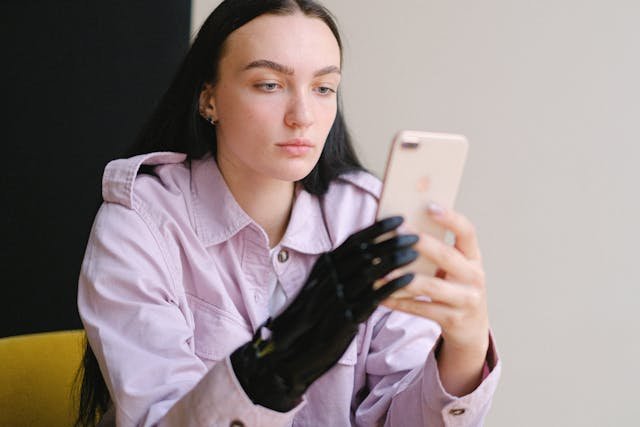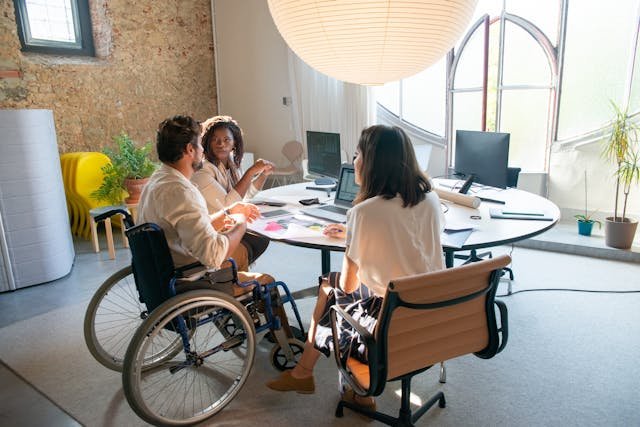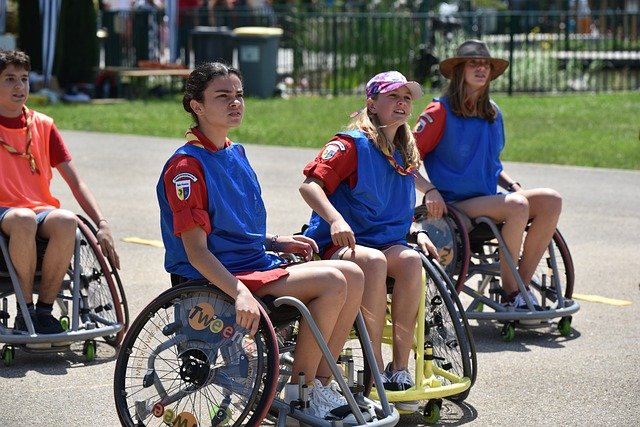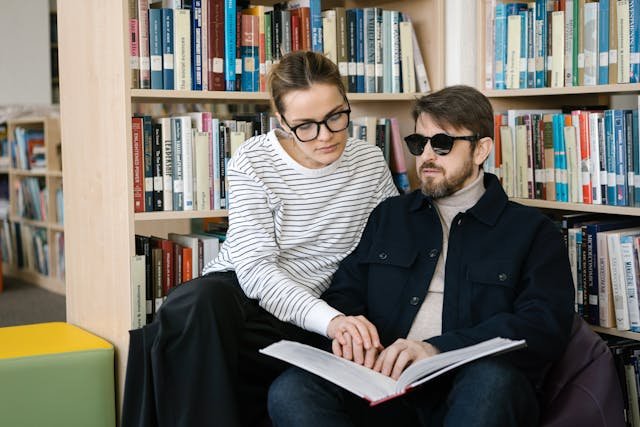Awards shows are some of the most influential events in the entertainment industry. They don’t just celebrate talent—they shape public perception, influence future productions, and set industry standards. When a film, show, or performance wins an award, it gains more visibility, meaning its message reaches a wider audience. But what happens when it comes to disability representation?
For decades, awards shows have overlooked disabled actors, filmmakers, and stories. While some progress has been made, disability representation still lags behind other forms of diversity in media. When awards recognize authentic portrayals of disability, they validate the experiences of millions and encourage the industry to prioritize inclusion. But how well are these events doing, and what needs to change? Let’s take a closer look.
How Awards Shows Influence Disability Representation
Awards shows play a crucial role in shaping which stories get told and who gets recognized. Their impact extends beyond a single night of glamour—it affects the future of disability representation in film and television.
The Power of Recognition

Winning an award is more than just an individual achievement; it brings industry-wide validation. When a performance or film about disability is recognized at the highest level, it tells studios, networks, and decision-makers that these stories matter. It signals that audiences want to see more diverse and inclusive content.
Historically, disabled characters have often been played by non-disabled actors, and their stories have been framed around pity or inspiration rather than authentic experiences. When awards celebrate more nuanced and realistic portrayals, it shifts how disability is perceived in media. Recognition encourages writers, directors, and producers to approach disability with greater responsibility, leading to richer, more accurate storytelling.
Impact on Casting Decisions
Casting is one of the most significant areas where awards influence representation. Traditionally, Hollywood has favored well-known able-bodied actors to play disabled roles, a practice known as “cripping up.” Many of these performances have won major awards, reinforcing the idea that disabled roles should be played by non-disabled actors.
But as the conversation around authentic representation grows, awards shows have the power to change this outdated practice. Recognizing performances by disabled actors encourages the industry to hire more authentically, proving that talent exists within the disability community. When disabled performers are given opportunities, it not only improves representation but also creates more career pathways for future generations of actors.
Encouraging More Disability-Focused Stories
Awards recognition also drives investment. Studios and production companies take note of what wins big and adjust their strategies accordingly. If disability-centered films and TV shows gain traction at major award shows, studios are more likely to fund similar projects in the future.
When a film like CODA (which featured a predominantly deaf cast) won the Oscar for Best Picture in 2022, it sent a strong message to the industry: authentic disability representation can be both critically acclaimed and commercially successful. This kind of validation encourages filmmakers to explore diverse disability stories, moving beyond outdated tropes to create fresh, compelling narratives.
The Lack of Consistent Recognition for Disabled Talent

While some progress has been made, the reality is that disability representation at awards shows is still inconsistent. Many talented disabled performers and filmmakers remain overlooked, and disability often takes a backseat in diversity conversations.
Few Wins, Even Fewer Nominations
Despite millions of disabled people worldwide, very few have been nominated for major acting awards. The number of disabled winners is even smaller. While some disability-centered films have won awards, they are often led by non-disabled actors, reinforcing the industry’s preference for able-bodied portrayals of disability.
The lack of nominations for disabled actors is not due to a lack of talent—it’s a systemic issue. Many disabled performers do not even get the chance to audition for major roles because casting directors assume an able-bodied actor will play the part instead. Without opportunities, disabled actors remain invisible, and their absence from awards show nominations reflects this broader industry exclusion.
The “Inspiration” Trap
When disabled characters or stories do receive awards attention, it is often for narratives that fit a narrow, inspirational mold. Films about overcoming adversity, medical struggles, or disabled individuals who “prove society wrong” tend to dominate. While these stories can be important, they do not reflect the full range of disabled experiences.
The reality is that disabled people live complex, diverse lives. They experience love, adventure, humor, and ambition just like anyone else. If awards shows only recognize disability when it fits an emotional, triumphant arc, they reinforce the idea that disabled people must constantly prove their worth. More nuanced, everyday portrayals of disability deserve just as much recognition.
Overlooking Disability in Behind-the-Scenes Roles
Awards shows often focus on actors and directors, but the disability community is also underrepresented in other creative roles. Writers, editors, cinematographers, and producers with disabilities rarely get the same recognition as their able-bodied peers.
This lack of visibility behind the scenes affects how stories are told. If disabled voices are not involved in decision-making, disability representation risks being inaccurate or one-dimensional. Recognizing the contributions of disabled creatives would encourage more inclusive storytelling and lead to better representation across the industry.
How Awards Shows Can Improve Disability Recognition

If awards shows are serious about recognizing diversity, they must make meaningful changes to include disabled talent both in front of and behind the camera.
Commit to Authentic Representation
One of the most impactful steps awards shows can take is committing to recognizing authentic disability representation. This means prioritizing performances by disabled actors rather than rewarding able-bodied actors for playing disabled roles.
Some industry groups have already taken a stand. The BAFTA Awards, for example, have introduced new diversity and inclusion standards that encourage authentic casting. If more major awards shows followed suit, it would create a ripple effect, encouraging studios to cast disabled actors and tell more authentic disability stories.
By setting clear standards for representation, awards bodies can ensure that disabled talent is not just an afterthought but a key part of the industry.
Expand Categories to Include Disability-Specific Awards
One way to ensure disability representation is consistently recognized is to introduce categories specifically for disabled performers and creators. Just as awards exist for foreign films, animated films, and documentaries, a category dedicated to disability representation could spotlight underrepresented talent.
While some may argue that a separate category risks isolating disabled creators, it would provide a guaranteed platform for recognition. Over time, as inclusivity improves, disabled talent could be fully integrated into all mainstream categories.
Increase Disability Representation on Awards Juries
Who decides which films and performances get nominated? Awards juries and selection committees play a crucial role in shaping the industry, but they often lack diversity—including disability representation. If the people making these decisions do not understand the importance of authentic disability representation, they are less likely to recognize it.
Bringing more disabled professionals onto awards committees would ensure that disability is properly considered during the nomination and voting process. It would also signal a commitment to inclusion at every level of the industry.
The Role of Social Movements in Pushing Awards Shows Toward Inclusivity

While awards shows have been slow to fully embrace disability representation, social movements and public advocacy have played a key role in demanding change. The rise of online activism, industry pressure, and grassroots campaigns has forced award bodies to reconsider their exclusionary practices and make room for disabled talent in meaningful ways.
Social Media as a Tool for Accountability
In today’s digital age, social media has become one of the most powerful tools for change. When awards shows fail to recognize disabled talent, audiences take notice—and they speak up. Platforms like Twitter, Instagram, and TikTok have been instrumental in calling out ableism in the entertainment industry.
Hashtags like #OscarsSoWhite and #DisabilitySoWhite have already exposed racial and disability disparities in media representation. Activists and disability advocates use these platforms to highlight the lack of disabled nominees, the continued practice of “cripping up,” and the absence of accessibility at award ceremonies.
For example, when major films about disability—such as The Theory of Everything and Me Before You—cast able-bodied actors in disabled roles, social media backlash followed. These discussions have pressured filmmakers to rethink their casting choices and encouraged award bodies to acknowledge the need for authentic representation.
By creating public conversations, social media activism has made it impossible for awards shows to ignore the issue. The more people demand inclusion, the more pressure awards organizations face to take disability representation seriously.
Advocacy from Disability Organizations
In addition to online activism, disability rights organizations and advocacy groups have played a crucial role in pushing for recognition. Groups such as RespectAbility, the Ruderman Family Foundation, and the Disability Rights Education & Defense Fund (DREDF) have worked directly with studios, filmmakers, and award organizations to promote inclusivity.
These organizations conduct research, provide training, and develop guidelines for authentic representation. They also engage in direct advocacy, encouraging awards bodies to adopt inclusive policies, recognize disabled talent, and include disability categories in their nomination criteria.
For example, the Ruderman Family Foundation introduced guidelines stating that disabled characters in film and TV should be played by disabled actors. While this is not yet a formal requirement for award eligibility, ongoing advocacy efforts could lead to new industry standards that prioritize authenticity.
By continuing to work with major film academies and awards bodies, disability organizations can influence long-term change, ensuring that inclusivity is not just a temporary trend but a permanent shift.
Redefining What “Award-Worthy” Means

One of the biggest obstacles to disability recognition at awards shows is the outdated definition of what makes a performance “award-worthy.” Historically, award-winning performances have often been dramatic, emotionally intense, and centered around themes of struggle. This has led to the frequent awarding of non-disabled actors playing disabled roles—often in tragic, inspirational, or physically demanding portrayals.
However, disabled performers and activists argue that representation should not always be framed around hardship. Comedy, romance, science fiction, and action films featuring disabled characters deserve just as much recognition as dramatic roles. The more awards shows embrace a wider variety of disability-centered storytelling, the more diverse and authentic disability representation will become.
As social movements continue to challenge existing biases, they are reshaping industry standards. The push for change is working—slowly, but surely. The next step is for award organizations to actively embrace these changes and recognize the full spectrum of disabled talent in front of and behind the camera.
The Need for Accessibility in Awards Shows
While awards shows are meant to celebrate excellence in entertainment, they often fail to provide basic accessibility for disabled attendees. Whether it’s nominees, presenters, or guests, many people with disabilities face barriers that make it difficult to participate in these high-profile events. If awards organizations want to genuinely support disability representation, they must go beyond nominations and ensure that their events are fully accessible.
Physical Accessibility at Award Venues
Many awards shows are held in historic theaters or exclusive venues that were not designed with accessibility in mind. While some modifications have been made, challenges still exist. Narrow stage entrances, a lack of ramps, or poorly designed seating arrangements can make it difficult for wheelchair users or those with mobility impairments to move freely.
Even something as simple as accepting an award can become an obstacle. In past ceremonies, disabled winners have had to navigate stairs without proper accommodations, while some have been forced to accept their awards from the audience rather than on stage. These situations highlight the need for better planning and infrastructure.
To create truly inclusive events, awards organizers must prioritize accessible entrances, backstage areas, and seating for disabled nominees and guests. Ensuring that stages have ramps, podiums are at adjustable heights, and pathways are wide enough for mobility aids should not be an afterthought—it should be a standard requirement.
Accessible Communication for Deaf and Blind Attendees

Awards shows are highly visual and auditory experiences, but many fail to provide accommodations for deaf, hard-of-hearing, blind, and low-vision attendees.
For deaf guests, live captioning and sign language interpreters should be available at every stage of the event, from red carpet interviews to acceptance speeches. While some awards shows have incorporated these features in recent years, they are still inconsistent. Ensuring that all spoken content—including off-stage announcements—is accessible in real-time would make the experience more inclusive.
For blind and low-vision attendees, audio descriptions should be provided so they can fully experience the visual aspects of the event. This includes descriptions of stage presentations, fashion details, and audience reactions. Without these accommodations, visually impaired guests miss out on significant aspects of the ceremony.
Technology has made it possible to provide real-time accessibility solutions, but many awards shows have been slow to adopt them. By making these adjustments a priority, event organizers can ensure that all attendees, regardless of disability, can fully engage with the experience.
Ensuring Digital Accessibility for Global Audiences
Beyond the physical event, awards shows reach millions of viewers worldwide through television broadcasts and online streaming. However, many of these platforms still lack proper accessibility features.
Live streams and television broadcasts often fail to provide accurate captions, and online replays may not include subtitles at all. This creates a major barrier for deaf and hard-of-hearing viewers who want to engage with the event. Similarly, many official websites and social media pages for awards shows are not screen-reader friendly, making them difficult to navigate for blind users.
Improving digital accessibility means ensuring that live streams come with high-quality captions, ASL (American Sign Language) interpreters appear on-screen, and all official websites are designed with accessibility standards in mind. Awards shows have the resources to implement these changes—it’s a matter of making inclusion a priority.
Conclusion
Awards shows hold immense power in shaping the future of disability representation in media. When they recognize authentic disability portrayals, they validate the experiences of disabled people and encourage more inclusive storytelling. However, the industry still has a long way to go in consistently celebrating disabled talent.
For real change to happen, awards shows must go beyond occasional recognition and commit to structural reforms. By embracing authentic representation, expanding award categories, and ensuring disability voices are part of the selection process, they can create a more inclusive entertainment industry.
At Robobionics, we believe in breaking barriers and redefining possibilities—both in technology and in representation. Just as we strive to innovate in the world of prosthetics, the media industry must innovate in how it tells and honors disability stories. A world where every story gets the recognition it deserves is a world where progress truly happens.



